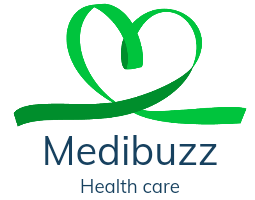Acne
About Acne:
Acne is a common skin disease that affects almost everyone at some point in life. This results in hives, oily skin and sometimes skin that is hot or painful to the touch.
Acne usually appears in the following places:
FACE: It affects almost everyone affected by Acne.
BACK: This affects more than half of people affected by herpes.
CHEST: This affects about 15% of people affected by herpes.
Types of Grains :
There are six main types of acne due to acne:
- Black head : Small black or yellow bumps that appear on the skin; They are dark not because of dirt but because the inner layer of the hair follicle produces pigment (pigmentation).
- Safed Sar : Similar in appearance to black head, but may be harder and do not empty when squeezed.
- Pindians : Small red bumps that may feel tender or painful.
- Abscesses : Similar to boils but with white heads in the center, formed due to accumulation of mucus.
- Nodules : Large hard lumps forming under the surface of the skin that can be painful.
- Phunsian : The most severe type of acne caused by herpes; They are large pus-filled nodules that resemble boils and are most prone to permanent scarring.
Helpful Procedures at Home :
- Do not wash affected skin areas more than twice a day. Repeated washing can irritate the skin and worsen symptoms.
- Wash the affected area with lukewarm water and a mild soap or cleanser. Very hot or cold water can aggravate acne.
- Do not try to extract blackheads or squeeze the pimples. This can make them worse and leave permanent scars.
- Avoid using too much makeup and cosmetics. Use water-based products that are described as “non-exfoliating” (meaning the product is less likely to clog skin pores).
- Remove makeup completely before going to bed.
- If dry skin is a problem, use a fragrance-free, water-based emollient .
- Regular exercise may not reduce your acne, but it can improve your mood and boost your confidence. Shower as soon as possible after you finish exercising, as sweat can aggravate your acne.
- Wash your hair regularly and try to keep your hair away from your face.
Remedial treatment :
· Acne cannot be completely eradicated, but it can be controlled with treatment. There are many creams, lotions, and gels available over the counter to treat acne. If you get herpes, it’s a good idea to talk to your pharmacist for advice.
· Treatment can take up to 3 months to work, so don’t expect overnight results. Once they start working, the results are usually good.
When to consult an expert :
· Acne is usually not serious and can be treated by a pharmacist. If your acne is severe or appears on your chest and back, it can be treated with prescription-only antibiotics or stronger creams. Your pharmacist can advise whether you need to see your GP for further treatment.
· If you develop warts or pimples , these should be properly treated by your GP to avoid scarring. Try to resist the urge to touch or squeeze the pimples, as this can cause permanent scarring.
· Acne is usually linked to hormonal changes during puberty, but it can start at any age.
Certain hormones cause the oil glands in the skin along with the hair follicles to produce excessive amounts of oil (abnormal sebum).

